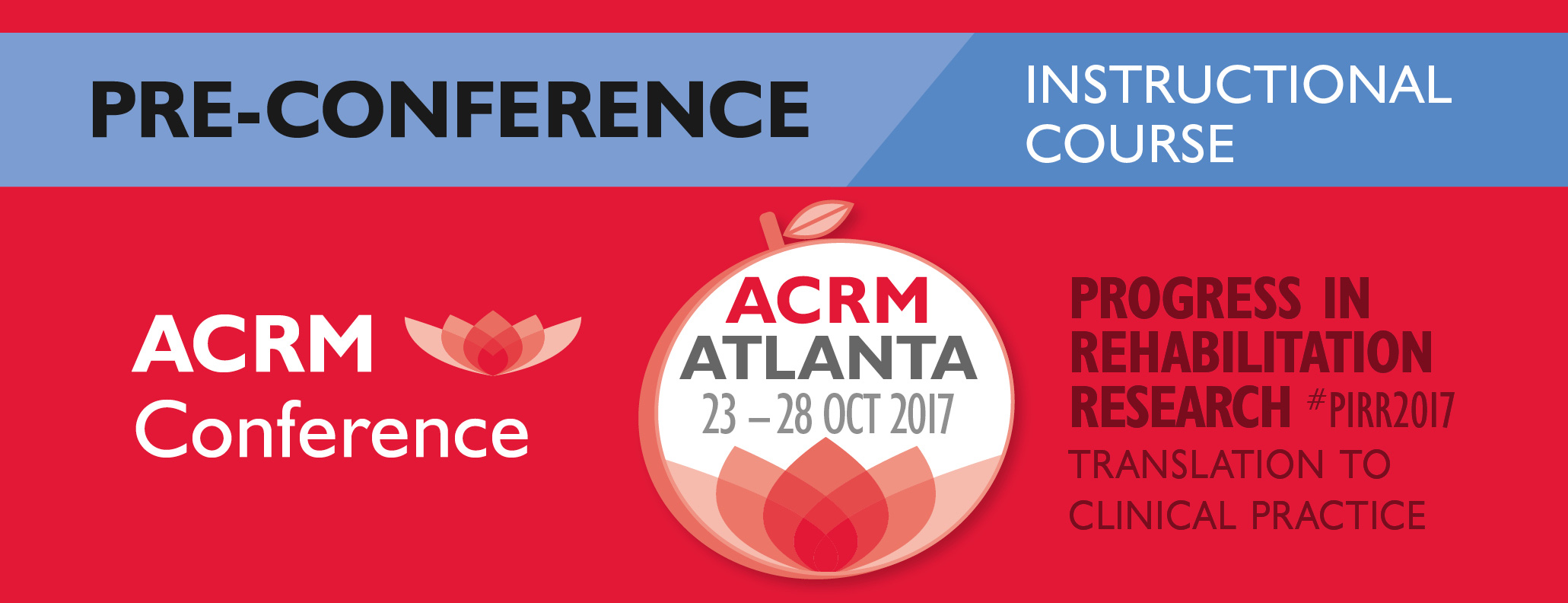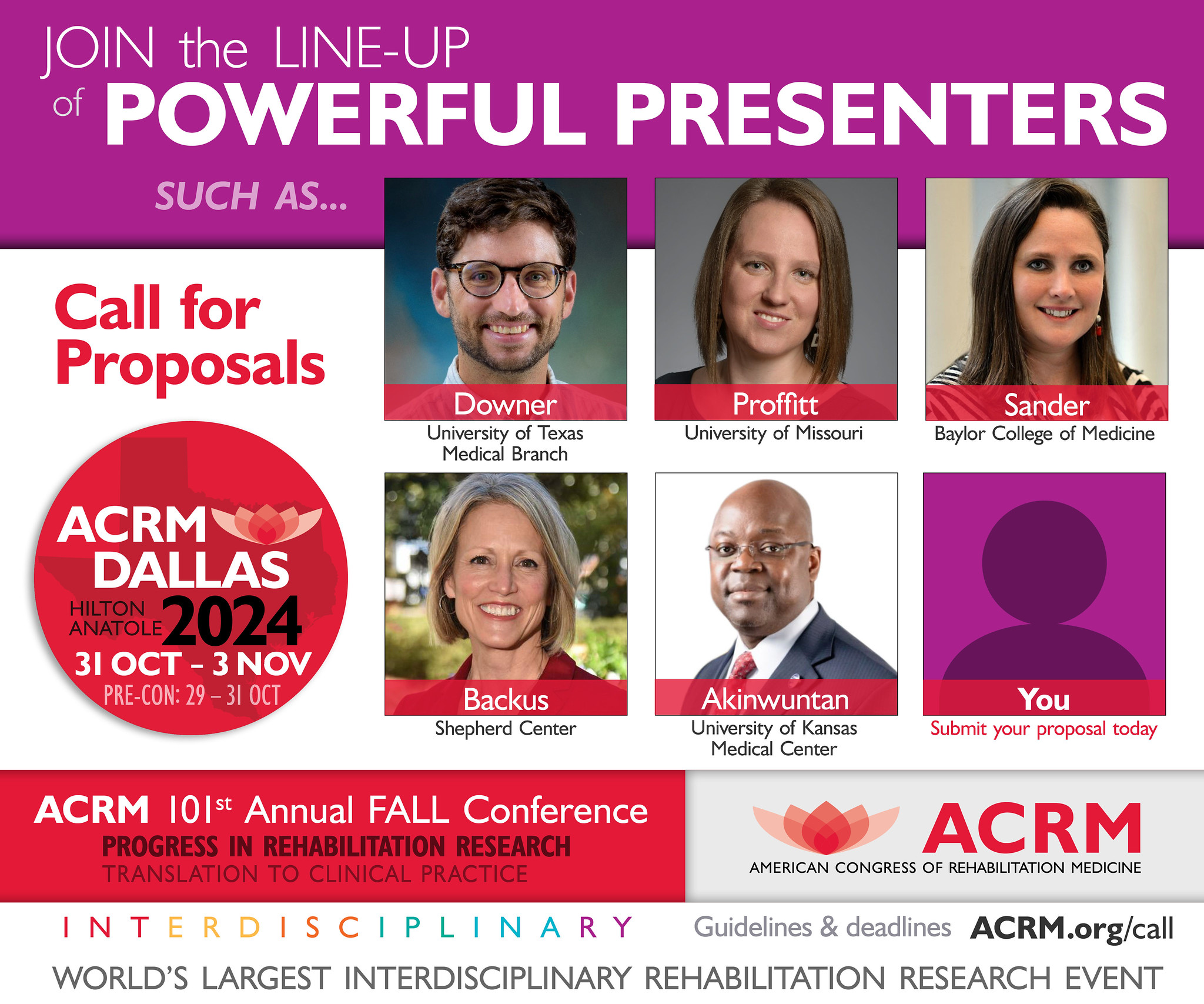MON 23 OCT // 1:30 PM – 5:30 PM
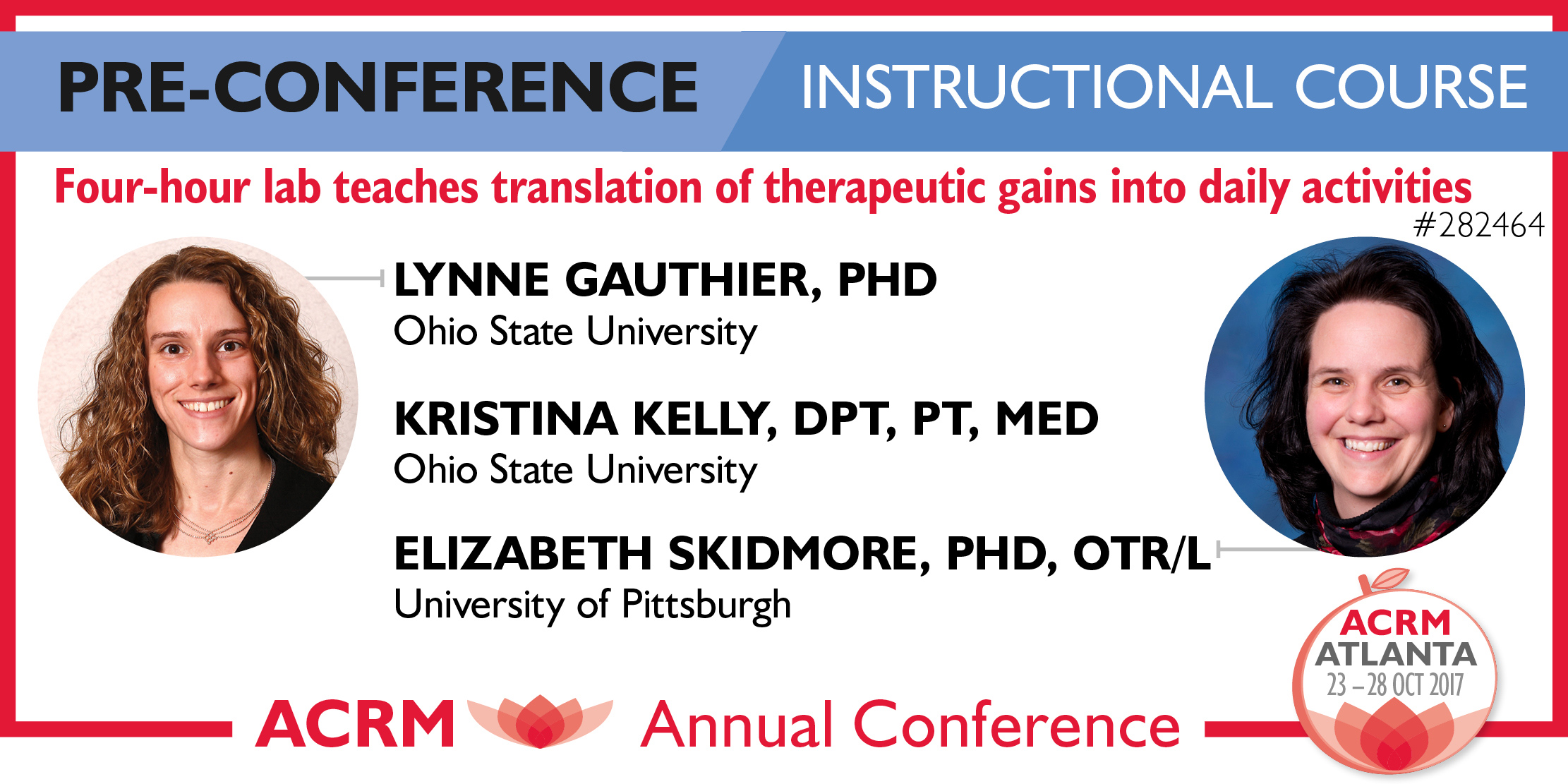
Primary Content Focus: Clinical Practice (assessment, diagnosis, treatment, knowledge translation/EBP, implementation science, program development)
Secondary Content Focus: Cross-Cutting
Tertiary Content Focus: Technology (e.g. robotics, assistive technology, mHealth)
Evidence suggests that focus on carry-over promotes increased use of a weaker limb in everyday life. The CI therapy transfer package is a set of behavior change techniques that facilitate carry-over and can be used with any intervention. It encourages patients to take active responsibility for engaging in therapeutic activities throughout the day, effectively extending the amount of time spent on rehabilitation; it also teaches problem-solving during tasks in a way that can be applied independently even after the treatment period ends. During this course, participants will gain the knowledge and skills to implement the transfer package into clinical practice.
LEARNING OBJECTIVES
- Explain the current evidence supporting use of the transfer package and guided problem-solving in rehabilitation
- Engage in guided problem-solving that will promote patient independence with daily activities
- Implement written materials for translating use of the transfer package into clinical practice
- Apply reimbursement strategies facilitating payment for carry-over treatment services
PRESENTERS
Lynne Gauthier, PhD
Ohio State University
Kristina Kelly, DPT, PT, MEd
Ohio State University
Elizabeth Skidmore, PhD, OTR/L
University of Pittsburgh
BIOS
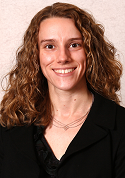
Dr. Lynne Gauthier has received training in both neuroimaging and constraint-induced movement therapy. As a former graduate mentee of Dr. Taub, she began a program of research that utilizes new neuroimaging techniques to better understand the structural brain changes that accompany CI therapy and other rehabilitation strategies. She was the first to apply the technique of longitudinal voxel-based morphometry to individuals with neurological impairment to examine the effects of therapy on brain structure. This work resulted in a high-impact paper in Stroke. During her time as Assistant Professor at The Ohio State University (OSU), she has continued to further her work in neuroplasticity and stroke rehabilitation, aided by funding through the American Heart Association and the Patient-Centered Outcomes Research Institute. She has translated her research findings into her clinical work as a Rehabilitation Psychologist, establishing a CI therapy clinic at OSU. Through this clinic, she has gained practical experience applying empirically-supported CI therapy principals to everyday clinical practice.
Kris Kelly is a doctor of physical therapy with residency training in neurologic physical therapy. Prior to becoming a physical therapist, she obtained a master’s degree in counseling and has infused that background into her patient care strategies. As a member of The Neurorecovery and Brain Imaging Lab at The Ohio State University, Kris has delivered both motor rehabilitation and behavior change interventions for studies of constraint-induced movement therapy (CI therapy) in chronic stroke and multiple sclerosis. She is currently pursuing a PhD in Health and Rehabilitation Sciences with a focus on exploring mechanisms underlying the carry-over of motor gains into daily activities amongst participants receiving in-person CI therapy, home-based gaming CI therapy, and conventional therapy. In future work, she hopes to investigate the effect of incorporating transfer package behavior change techniques into additional motor therapies for varying neurologic patient populations with the goal of maximizing quality of life outcomes.
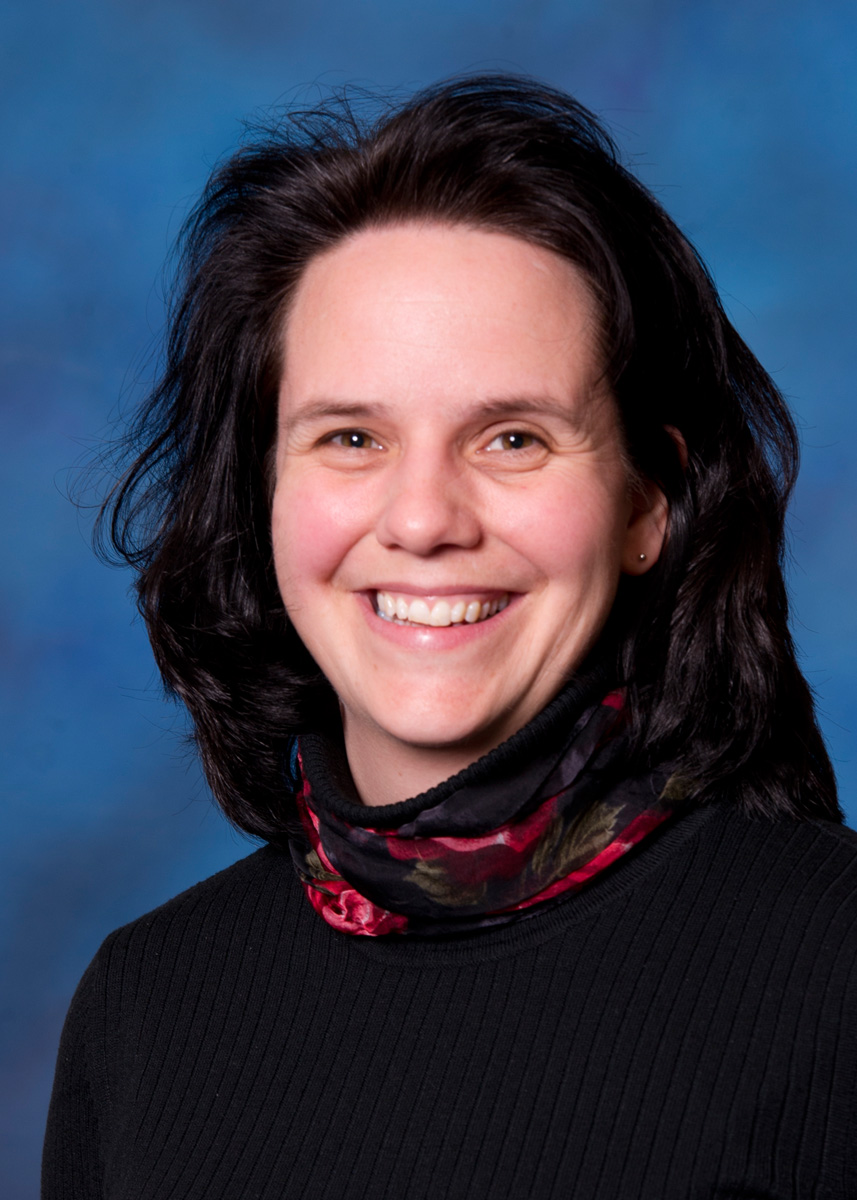
Elizabeth Skidmore is an occupational therapist with expertise in neurorehabilitation, and Associate Professor and Chair in the University of Pittsburgh Department of Occupational Therapy. In addition to her primary appointment in the School of Health and Rehabilitation Sciences, she holds secondary appointments in the School of Medicine (Department of Physical Medicine & Rehabilitation and the Clinical Science Translational Institute) and the School of Nursing. Dr. Skidmore is also a scientist at the University of Pittsburgh Medical Center Rehabilitation Institute. Dr. Skidmore’s federally funded research program addresses two foci: 1) associations among cognitive impairments, mood symptoms, and activities of daily living in persons with brain injury and neurocognitive decline; and 2) interventions designed to promote independence and community integration among adults with cognitive impairments. Dr. Skidmore is the recipient of the Pennsylvania Occupational Therapy Association Academic Educator Award and the School of Health and Rehabilitation Sciences Dean’s Distinguished Teaching Award. She is also the recipient of the Pennsylvania Occupational Therapy Association Inaugural Research Award, and the American Congress of Rehabilitation Medicine Deborah Wilkerson Research Career Award. Dr. Skidmore is a member of the American Occupational Therapy Foundation Academy of Research and the American Occupational Therapy Association Roster of Fellows. In 2016, Dr. Skidmore was the first occupational therapist to receive the Presidential Early Career Award for Scientists and Engineers, the highest honor bestowed by the United States Government on early career scientists.
ACRM Annual Conference, Progress in Rehabilitation Research (PIRR#2017)
CORE: 25 – 28 OCT 2018 // HILTON ATLANTA, USA // PRE-CONFERENCE 23 – 25 OCT
REGISTER ONLINE HERE or Register by Phone: +1.703.435.5335
 |
 |
 |
 |
*For the latest programming info, schedule, session and faculty details, and room locations, please see the Searchable Online Program & Scheduler and/or the ACRM App. Although significant changes are not anticipated, the schedules, sessions, and presenters posted on this website are subject to change.


